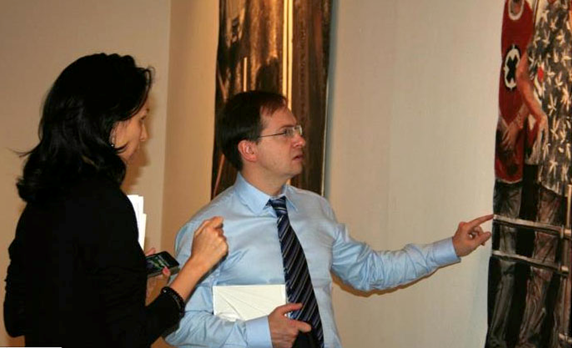On May 21 the list of the members of a new Russia’s cabinet of ministers was released, and now, after a week this event is still one of the main subjects discussed in Russian media.
Here’s how Ellen Barry of New York Times commented on the event:
“President Vladimir Putin replacedall but a handful of Russia’s cabinet of ministers on Monday, in a long-awaited step that nonetheless held out little chance the new government would push through major political or economic change.”
I cite this quote because of the striking difference of the coverage of the event by the New York Times and by Russian Media.
Nothing could sound more humiliating to Russians loyal to their government then the first sentence of Barry’s article. Barry presents the idea that the new members of the government were appointed personally by Putin as the obvious fact. However, Russian media is trying hard to create illusion that Russia is ruled by some kind of democratic process.
For the first time in the new Russian history the former president and now prime minister Dimitry Medvedev was interviewed on TV by Russia’s prominent interviewer Vladimir Pozner. The main point of the sensational interview was the attempt to prove that all the decisions of choosing new ministers were made by Medvedev when president; that Putin, the former president and then prime minister, had no veto over Medvedev’s decisions.
Though three top Putin allies – Foreign Minister Sergey Lavrov, Defence Minister Anatoly Serdyukov and First Deputy Prime Minister Igor Shuvalov – have kept their jobs, 75% of the government was changed. None of the new ministers is older then 50. The youngest – the Minister of Communications, Nikolay Nikiforov, is 29 years old. Almost all of new ministers are not politicians or bureaucrats, but proven specialists in their fields.
The only exception of the rule is Minister of the Culture Vladimir Medynsky. He is a very controversial figure – a delegate to the Duma, political activist, journalist and author of several books, a promoter of extreme Russian patriotism. The basic idea of all Medynsky’s writings is openly cynical. He believes that Russians should see Russian history as a collection of patriotic legends glorifying the Motherland. He has only one criterion in evaluating foreign historians: those who praise Russia are friends. Those who criticize Russia are enemies.
The role of minister of culture is extremely important in today’s Russia. Almost no film can be produced, no theater or museum can exist, without financial support of the government. All the ministers of culture of the post–Soviet era before Medynsky were not politically oriented people; rather they had their backgrounds as theater or film professionals.
On the Russian Internet can be found a lot of predictions that Medynsky is going to be a Joseph Goebbels like leader;omeone who is going to turn entire Russian Culture department into Russian Propaganda.
The first official initiative of the Medynsly in his new capacity was a proposal to change names of many streets in the Russian cities. In the Soviet era a lot of streets were named after prominent communists. Following Perestroika their pre–revolutionary names were returned to most of the streets.
But some streets still have names of the forgotten revolutionaries. Medynsky’s idea is to replace the names of “terrorists and killers” (as he calls the founders of the Communist state) by the names of their aristocratic victims who, after the fall of Communism, were recognized by the Russian Orthodox Church as saints.


